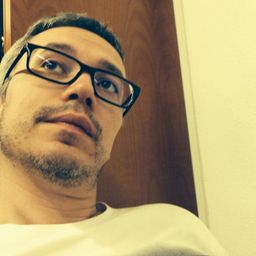M.A.D.E. IN VENETO. A project for a method experiment
My Session Status
What:
Paper
When:
11:30 AM, martes 30 ago 2022
(20 minutos)
Where:
UQAM, pavillon J.-A. De Sève (DS)
- DS-R525
M.A.D.E. in Veneto ([www.madeinvenetoregion.com](http://www.madeinvenetoregion.com)) is a project financed with resources from the European Social Fund. It’s a training project that aimed to bring operators of sources, business archivists, with the partnership of the archivist association Arch.IM - Archivisti in Movimento ([www.archim.org](http://www.archim.org)) closer to companies representing a significant sample of Made in Italy, identified by the subject proposing the project ([www.unisef.it](http://www.unisef.it)) for the creation of a path/web portal from which one can begin to tell, in historical, technical, cultural and marketing terms, the richness of the industrial heritage of the Veneto region. This story then becomes a concrete tourist experience thanks to the contribution of the travel designer TrattoPunto ([www.trattopunto.com](http://www.trattopunto.com)).
It’s not so much a question of describing the project itself, which has in any case achieved excellent results and which, not exhausted, is set to be the reference for an itinerary in the industry of the North East of Italy, but to underline how the project itself has become a training ground for the development of an intervention method to be applied also in other contexts. Imagine a strategy that starts from the archive, that passes through the actors of industrial development and that reaches the professionals of the rediscovery of territorial values. This strategy is grafted onto a training program that involves members of three different moments: archive professionals, industrialists and tourism and cultural communication operators.
It’s not a question of using consolidated interpretative schemes, whether they are based on geographical, economic or political contexts. Rather, it is a question of systematizing a strategy that draws on the interpretative tool proper to the area of intervention, whether it is the historical source, whether it is the company or the territory and its communication tool (tools that may come from different contexts) and that it implements it as unique, necessarily multidisciplinary and applicable to the aforementioned different contexts.
From this point of view, the tested model allows not only and not so much to understand the past and the repercussions it has had on the present but also proposes itself as a possible way to a new and further future development, attentive to respect for the entrepreneurial tradition, to exaltation of its impact which, however, must merge with the characteristics of the community that hosts it for a development that cannot take into account the virtuous relationship between business and territory. Territory that can also be enhanced through innovative communication tools that reinterpret these meanings in a tourist key; a new form of enterprise which, by spreading and distributing the visitor to less frequented destinations, can in turn be a more sustainable form of development than it was in pre-pandemic times.
Punctual experience and methodological reasoning that, mind you, take the starting point from a project that was born as essentially formative. Both, experience and method, can be replicated with greater ease, where their usefulness is recognized, in any environment, such as those, for example, of the member states of the European Community. Thanks to the action of the latter institution, in fact, the economic resources deployed for the industrial transition, be it towards greater digitization or towards a communication that includes more and more cultural and territorial elements, presuppose a large use in training of the human resources involved in this dynamic.
A strategy that, it is still emphasized, sees not only a virtuous relationship between different moments of the production chain (professional, industrial, tourism) but also between disciplines (educational, cultural, communicative) which in this way, less rigid, are able to obtain results more effective and directly applicable to the territory and the community than would happen if, as usual, they are the prerogative of specialists only.
